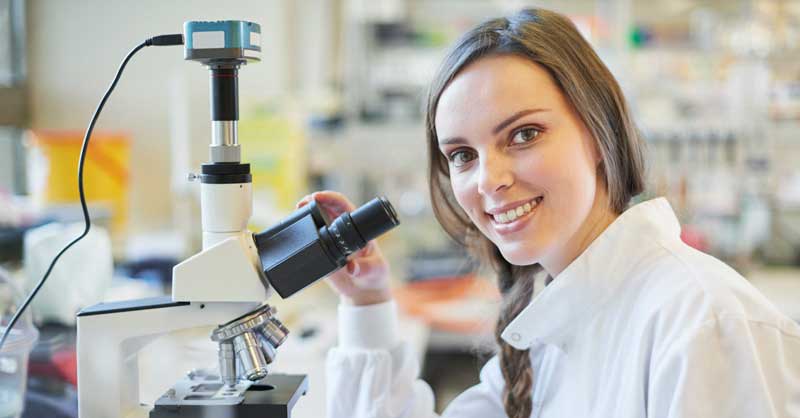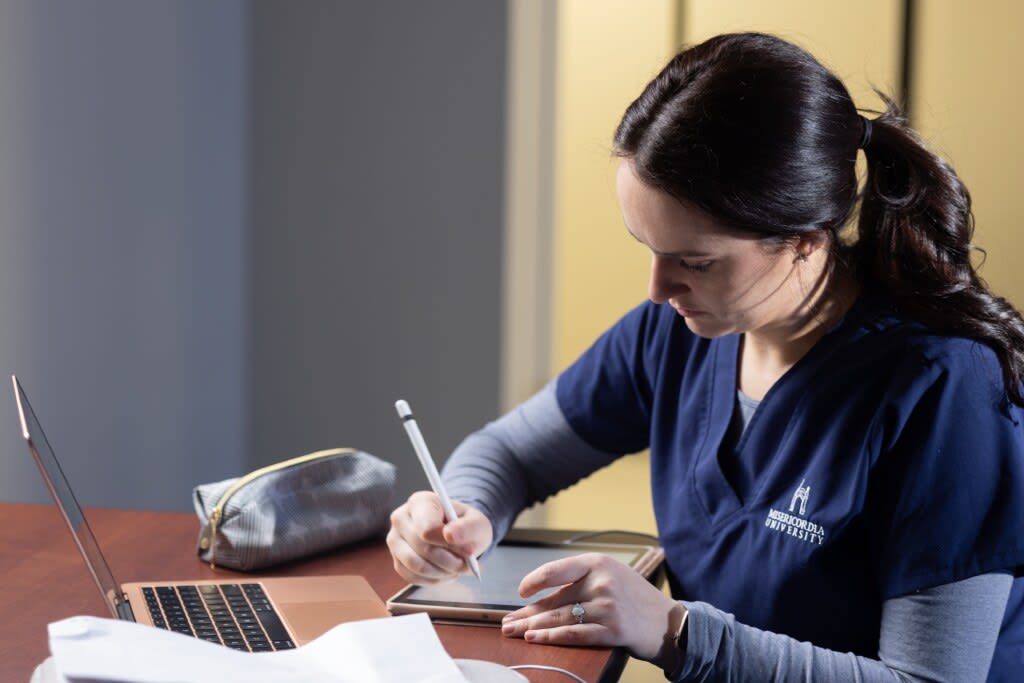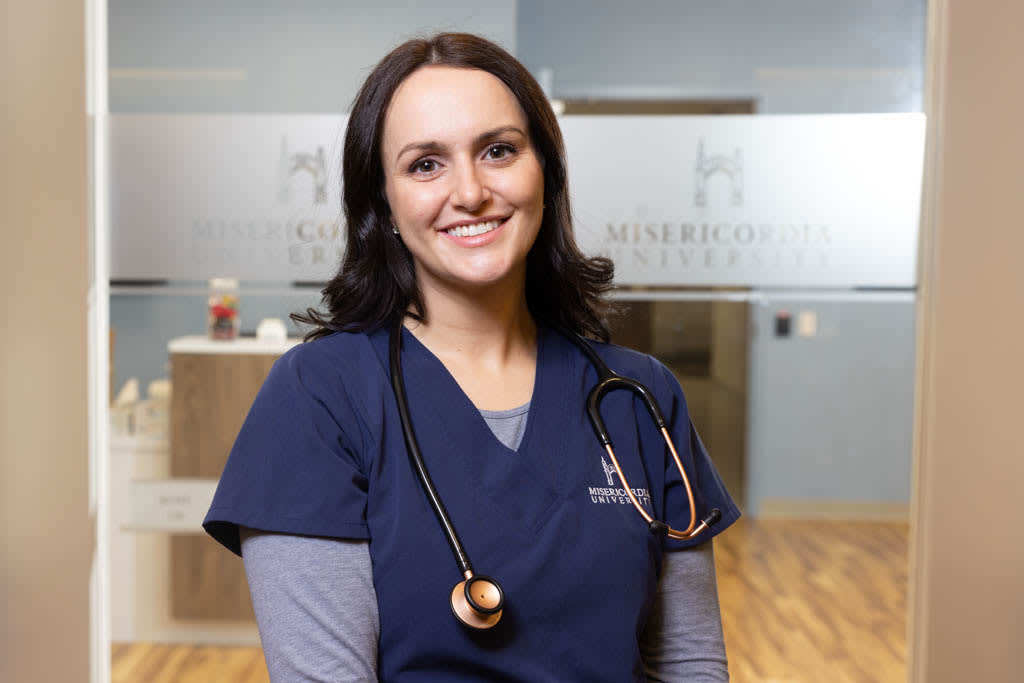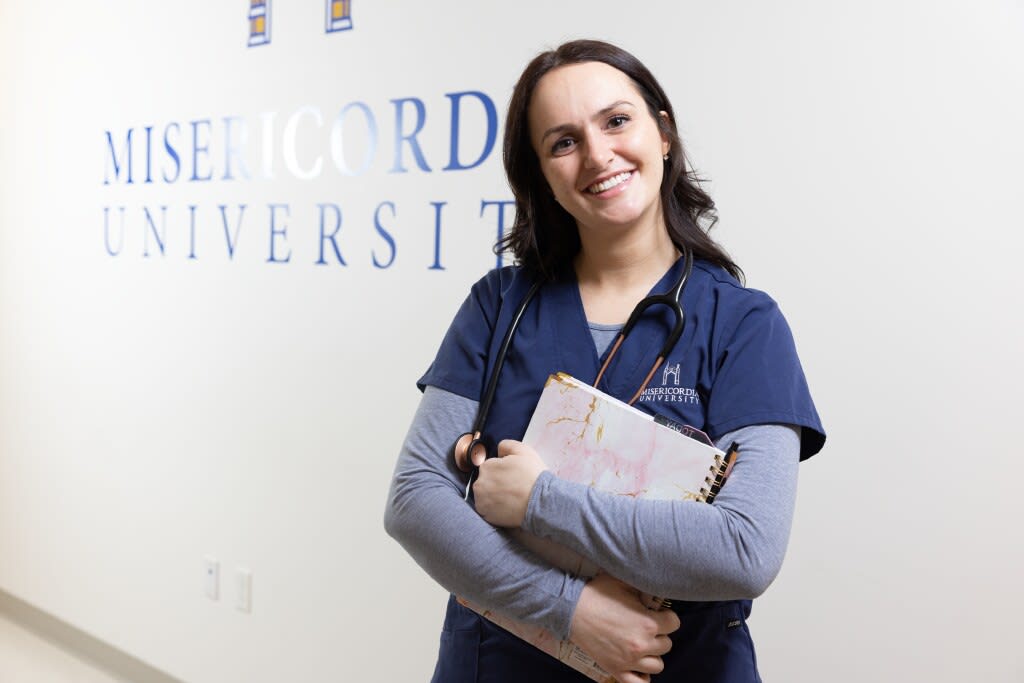4 Tips on How To Prepare for Prerequisites for Nursing
Each blog post is dated and contains accurate information as of that date. Certain information may have changed since the blog post publication date. If you would like to confirm the current accuracy of blog information, please visit our ABSN overview page or contact admissions at (866) 885-6337.
Want to know how to prepare for your prerequisites for nursing? Misericordia has four tips for you to follow, including taking a good look at your past education and establishing routines to both hold yourself accountable for schoolwork and make the time to take care of yourself.

If you are in the process of trying to get into a nursing program, you’ve likely come across the fact that you’ll have to take some prerequisite courses. Especially if you’re looking for an Accelerated Bachelor of Science in Nursing (ABSN) program, prerequisite courses are a given. This is because when you start your nursing curriculum, you will be hitting the ground running so that you can complete and earn your nursing degree in 16 months. It will be essential for you to have a firm understanding of the foundational knowledge provided in these prerequisites so that you can successfully complete your coursework.
What To Expect During Prerequisites for Nursing
The requirements for prerequisite courses may vary from school to school; however, some courses are generally required by most ABSN programs. These common course requirements include:
- Anatomy and Physiology.
- Nutrition.
- Microbiology.
- Psychology.
- Statistics.
When looking at prerequisite requirements for nursing, be sure to note that some science courses will also have a required lab component.
Misericordia University’s Prerequisites
Now that you understand the general prerequisite requirements, let’s take a closer look at Misericordia’s prerequisites for nursing as an example. We require several courses that cover both general education and science topics to ensure that you are entering the program as a well-rounded student and are able to understand some of the more complex scientific topics covered in the nursing curriculum.

The general education courses we require include:
- Basic Statistics.
- Introduction to Psychology.
- Child and Adolescent Psychology.
- Comparative Sociology.
The science prerequisite courses we require include:
- Introduction to Microbiology.
- Anatomy and Physiology I and II.
- Fundamentals of Nutrition.
While completing your nursing prerequisite courses, please keep in mind that you must pass all these courses with a grade C or higher. Even though they don’t count toward your nursing courses, it is still important that you give them your best effort.
Another thing to keep in mind when choosing Misericordia for your nursing education is that you can take your prerequisite courses through our university. We offer these courses to help make sure our prospective students transition smoothly into the ABSN program. Not only will this ensure the courses you’re taking will fulfill the prerequisite requirements without question, but it will also help to familiarize you with our online learning system, which you will be using throughout your time in the ABSN program.
How To Prepare for Nursing Prerequisites
Now that you have a thorough understanding of why prerequisites are important and what to expect, let’s go over our four tips that you can follow to help you prepare for nursing prerequisites.
1. Examine Your Past Education

As you examine the list of required prerequisites, you may notice that you have already taken some of these courses, depending on your previous studies. Of course, many of these accelerated programs – Misericordia’s included – are designed to accommodate career changers. This means that as long as you meet admission requirements, your previous degree won’t count against you if it was in something unrelated, such as finance, teaching, etc.
With that being said, certain bachelor’s degrees can give you a leg up, as you will have already taken many of these prerequisites in those programs. Some of these related degrees might include:
- Biology.
- Chemistry.
- Kinesiology.
- Psychology.
While our program is open to anyone, if you have a background in these fields, you may be able to begin your nursing school journey sooner.

See the steps you must take to become a nurse with a biology degree.
2. Speak to an Admissions Counselor
Now that you have an idea of how your past education can help you, it’s time to speak with an admissions counselor about prerequisites for nursing. Our expert admissions staff can help you determine which past classes may cover our prerequisite requirements and which ones you still need to take. Keep in mind that there may be a time frame in which you can apply any past courses toward your requirements. At Misericordia, for example, prerequisite courses must have been taken within the past seven years to ensure that you have up-to-date information.
Aside from helping you with prerequisites, your admissions counselor can also help you with the other components of our admissions requirements so that you have the best chance of getting into the ABSN program.

While prerequisites are an important component of your nursing school application, we have eight other ways you can increase your chance of getting into nursing school.
3. Make a Plan
Once you know which prerequisites you still must take, you can make an academic plan. Your counselor can help you with this so that you can develop a plan that will allow you to start the ABSN program as soon as possible. In fact, we offer three start dates per year, January, May, and August. This means that you can start your prerequisites immediately, and as soon as you finish them, you won’t be too far off from an ABSN start date.
4. Develop a Good Routine
It is important for you to begin developing a routine before and during your prerequisite classes for nursing. Outlining a routine before classes start can help you to hold yourself accountable for your schoolwork. You’ll want to set aside time each day to study so you can keep up with your courses. Establishing this routine now will help you get into the groove of things for when coursework really picks up in your nursing curriculum.

While it is important that you get ready to buckle down and put your nose in the books, you must also be sure to practice a healthy work-life balance. Making time for things you enjoy, spending time with family and friends, and doing things that will keep you healthy are imperative to stave off burnout. Getting into this habit now will not only help you get through the stress of nursing school, but it will also help you to maintain a healthy balance throughout your career.
Ready To Start Your Prerequisites for Nursing?
Now that you have the information you need for prerequisite preparation, it’s time to get started. Contact us today to speak with an admissions counselor who can help you get started with your prerequisites for nursing!
